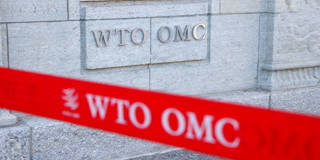
Multilateralism is waning, and one of the world’s leading multilateral institutions, the World Trade Organization, is in crisis, because the United States has been blocking new appointments to its dispute settlement mechanism’s Appellate Body since 2018. In the run-up to the WTO’s 13th Ministerial Conference last month, some optimists hoped to see progress on specific issues, such as an agreement not to impose tariffs on digital commerce, but expectations were generally low.
The pessimists were right. India led the charge against extending a moratorium on e-commerce tariffs, and only a last-minute deal prolonged it for another two years. After that, it is expected to expire. India and its allies celebrated the outcome as a victory. For the first time in years, the culprit undermining the WTO was not the US but developing countries (including Indonesia, South Africa, Brazil, and others).
True, what happened with digital commerce is characteristic of the usual conflicts that play out during trade negotiations. Free trade always produces winners and losers. Digital commerce may be in the interest of businesses in advanced economies as well as consumers and businesses in low- and middle-income countries; users of an app, game, or other software product made in a different country may pay lower prices in the absence of tariffs. But domestic producers will reliably demand protection from imports, and governments will see tariffs as a promising way to boost revenues.
No comments:
Post a Comment